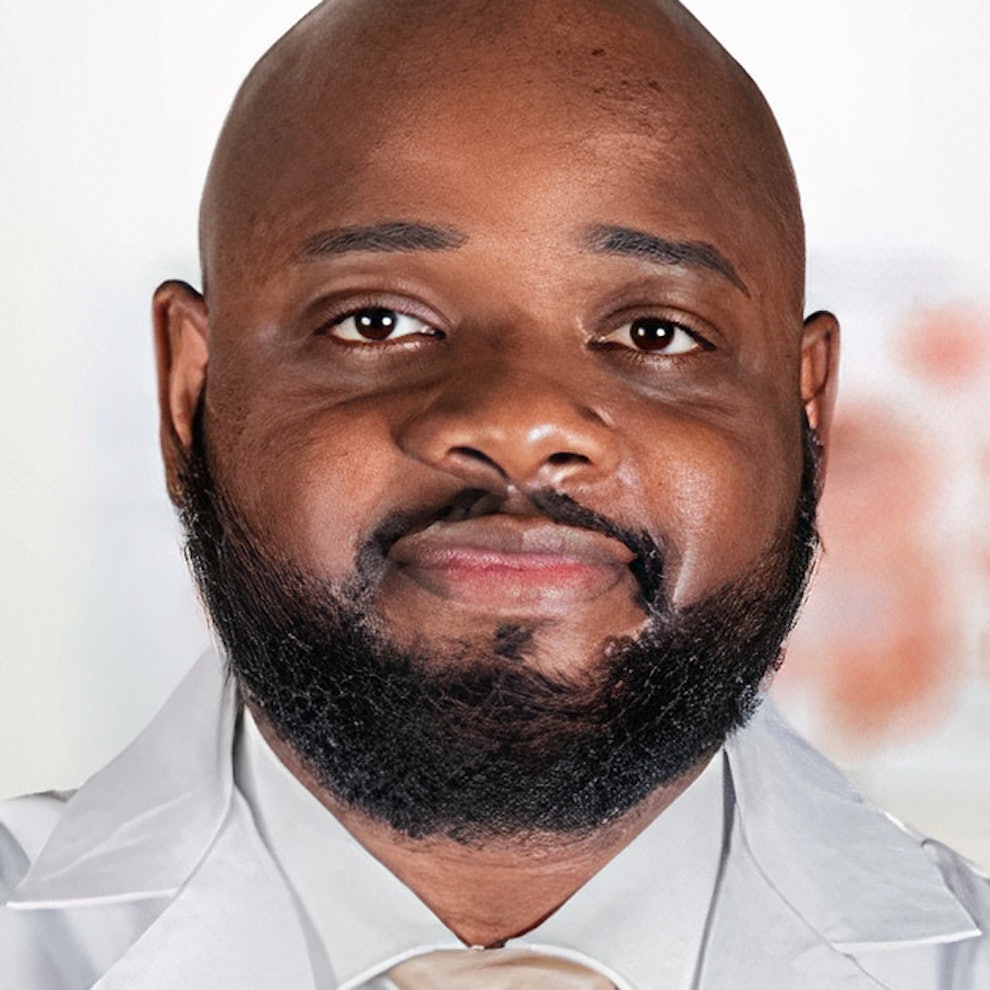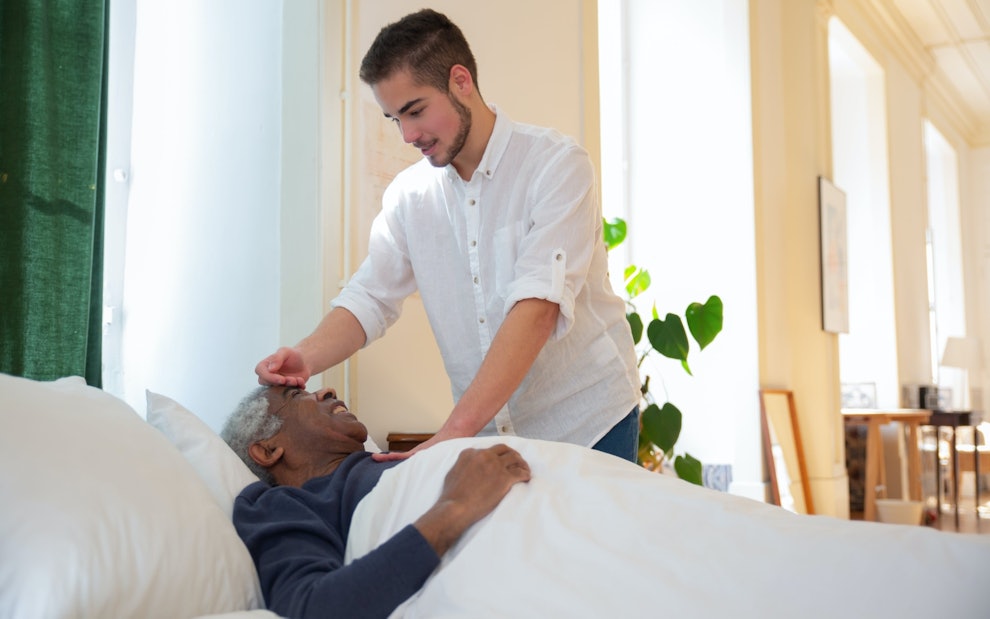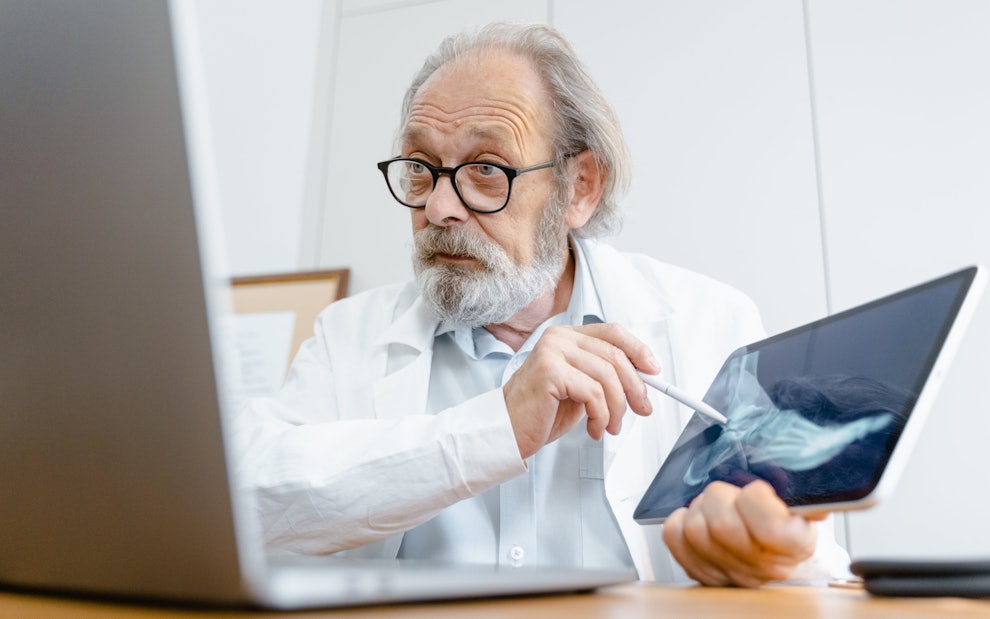9 Tips For Coping With Cancer Diagnosis
Article at a glance
Receiving a cancer diagnosis can change a person’s life, and can be a difficult experience to navigate.
According to the American Cancer Society, 1.9 million cases of cancer are expected to be diagnosed in the US.
Despite the uncertainty and anxiety surrounding cancer, there are ways to help cope with the reality of a cancer diagnosis.
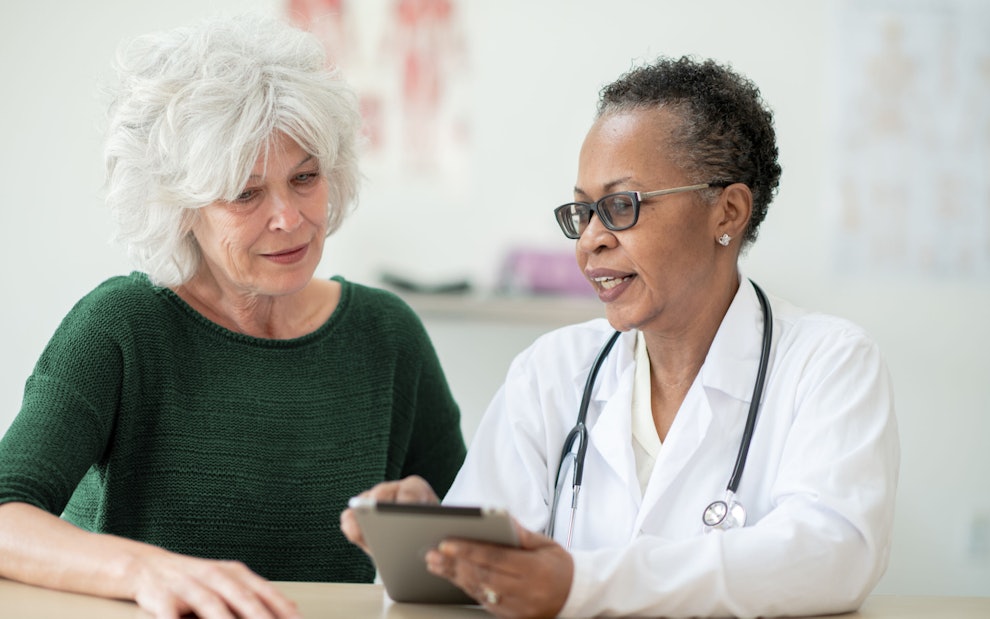
Receiving the news of a cancer diagnosis can be an overwhelming experience to process. It can be difficult to know what to expect, from the way cancer and treatments affect your life to the emotions that inevitably surface as you grapple with the diagnosis.
While being given a cancer diagnosis can feel jarring and bring on feelings of anxiety and uncertainty, there are some coping strategies that can help you navigate the diagnosis and all that comes next.

9 Ways To Cope With Your Cancer Diagnosis
1. Become Informed About Your Diagnosis
Hearing the word “cancer” can be a rattling experience, especially in relation to yourself or a loved one. One intimidating aspect of cancer is the different ways it may show up or the rate at which it can progress.
One way to help cope with your cancer diagnosis is to become informed about the specific type of cancer and stage it’s in. Your primary care physician (PCP) and health care team will be willing to answer any questions or concerns you or a family member may have, as they want you to be prepared. Learning more about your specific diagnosis can help you navigate and make the best decisions about your treatment options and care.
Some examples of questions you may ask include:
What type of cancer do I have?
Where is the cancer located?
Is my form of cancer treatable?
How far has it spread?
What types of treatment options are available for me?
What side effects come with cancer treatments?
How much will medical treatments cost?
What can I expect with this cancer diagnosis?
What can I do to make this process more manageable?
If my cancer goes into remission, how can I keep it from returning?
Your PCP and medical specialists will want you to be as informed as possible, so don’t be afraid to ask as many questions as you need.
2. Maintain Your Health
After receiving a cancer diagnosis, it makes sense to take a closer look at your overall health. The emotional, mental, and physical effects of cancer can make it feel overwhelming to try and focus on your health—but it can work as a potential way to manage your symptoms, as well as provide goals to help you look towards the future. Ways to maintain your health include getting enough sleep, mitigating stress and anxiety, eating a balanced diet, and exercising whenever possible.
Getting Enough Sleep: getting enough sleep is key to fighting off potential side effects that may be more likely after a cancer diagnosis, including depression and inability to focus/carry out usual day-to-day tasks. Forming consistent sleep habits, like going to approximately the same time each evening and avoiding caffeine/alcohol closer to bedtime, can help you sleep better and longer.
Mitigating Stress and Anxiety: while learning you have cancer can be stressful and anxiety-inducing, taking steps to help ease those feelings can be beneficial to your health. Some ways you may try to alleviate stress or anxious feelings is by distracting yourself with things you enjoy, talking to someone about what you’re feeling, and concentrating on tasks that are within your control. Another great way to mitigate anxiety is by practicing meditation and breathing strategies.
Eating a Well-Balanced Diet: while eating healthier may not always feel the easiest after learning you have cancer, it is still beneficial for your mind and body to try and eat a consistent, well-balanced diet as much as possible. Some tips you can try is by asking your doctor for recommendations for your diet (including foods that you should avoid due to medications), eating healthier versions of your favorite meals, or looking into a healthy meal-delivery plan in your area.
Being Physically Active: while cancer may have some effects on your physical body that may make super intense exercise difficult, there are other ways you can still remain physically active. Keeping your body active can help you maintain some of your strength and keep a healthy weight, both which are vital while fighting cancer. Some ways you could remain physically active include taking regular walks, taking a low-impact workout class, or even participate in activities such as yoga. Talking with your doctor or health care team can help you decide what options are best for you.
3. Allow Yourself to be Helped
Discovering you have cancer can bring up a lot of unpleasant emotions, including helplessness and shame. When experiencing these feelings, it can be tempting to act as though you do not need help or assistance, especially if you feel you’re losing your autonomy. However, cancer can take a toll on you physically, mentally, emotionally, and financially, so it’s important to allow others to support you.
Family members and loved ones will want to help you through this difficult experience, so allow them to. Whether they help you physically with taking care of errands or tasks, provide emotional support by listening or being with you during your treatments, or help you make decisions about your care, it will benefit you to have those you love help and support you during this process and make things easier to deal with.
4. Find a Support Group
Another way to help cope is to find a support group of others with a similar/same cancer diagnosis. While a loved one or family member will want to support you, it’s beneficial to also connect with others who have gone through or are currently experiencing the same things you are. There are a few different types of support groups you can join, including in-person, online, and telephone options.
In-person Support Groups
Usually found in hospitals or community centers, an in-person cancer support group allows cancer patients or survivors to gather. Some support groups may be more generalized and focus on cancer as a whole, while others may be more targeted to specific types of cancer or specific age groups. There may also be cancer support groups tailored towards caregivers, which can be beneficial for loved ones and families.
Online Support Groups
These cancer support groups are regular meetings that take place on the internet, usually through online message boards, chat rooms, or social media. Cancer patients can connect with others through online resources while learning information and sharing experiences. Some prefer online groups due to the flexibility and access day or night, and it works well for those who live in rural areas without consistent access to in-person options.
It’s important to note that not all cancer support groups are run or sponsored by cancer organizations, so it’s important to check the privacy settings and fact-check any medical information or advice with your healthcare provider.
Telephone Support Groups
These support groups allow a person to call into a phone line shared by other cancer patients, similar to a conference call. While not as popular as in-person or online options, these groups still allow for those across the country to connect and share experiences, and usually are low or no cost. These groups may be preferred for those without access to an in-person group but aren’t fond of internet alternatives.
Some ways you find cancer support groups include the following:
Talk with your healthcare provider: your health care provider can help to link you with local support group options that are available or can give information about connecting with online or telephone options.
American Cancer Society: The American Cancer Society has resources that can help connect you with established support groups. You learn more at this link.
National Cancer Institute (NCI): NCI has a database of cancer support resources, including information about support groups. You can learn more at this link.
5. Communicate and Express Your Feelings
One of the more challenging aspects of coping with becoming a cancer patient is the emotions that often accompany it. Newly diagnosed patients may experience a vast amount of feelings simultaneously. Frustration, sadness, helplessness, anger, irritation, and grief are all common emotions you may experience when learning you’ve been diagnosed with cancer.
As you start to navigate your cancer journey, it may feel difficult to express or communicate what you’re feeling to those around you. Whether it’s because you don’t want to feel the emotions, you’re afraid of being a burden, or you simply aren’t sure how to express your feelings, it can be tempting to keep everything inside.
Communicating your feelings honestly and openly to those around you will not only help you process the reality of your cancer diagnosis, but the sense of support will allow you to feel less alone in your experience. It will also allow your loved ones to understand what your wishes, wants, and needs are during this time.
Note: For more information on discussing your diagnosis and how to talk about your mental health, visit this source.
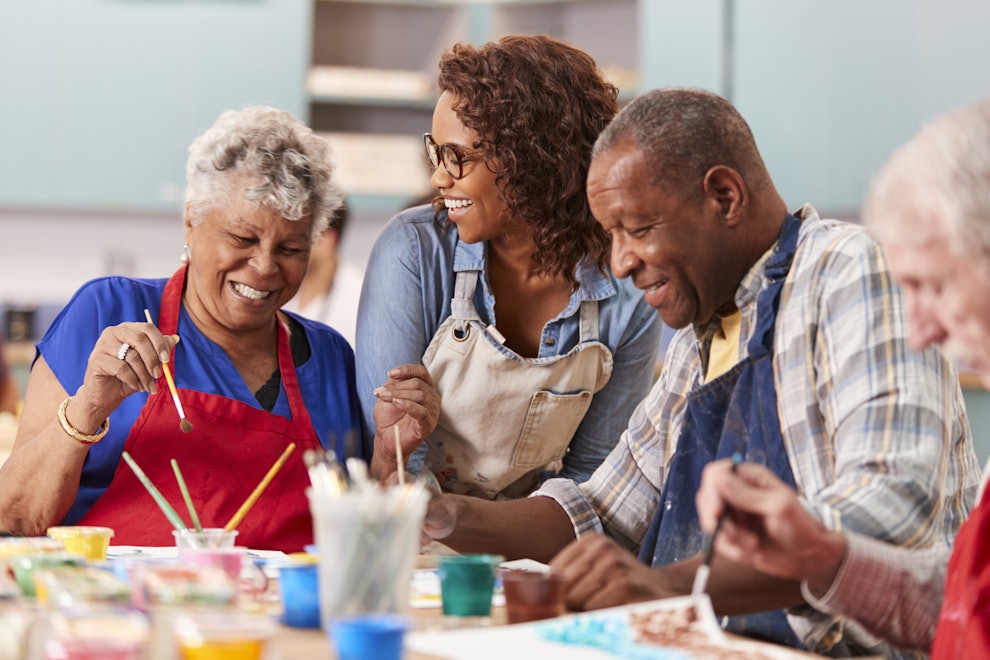
6. Make Future Plans
Learning you have cancer means there are many different aspects to consider. Treatment options, financial implications, lifestyle changes, and other factors will come into play.
Regardless of the type or severity of your cancer, it can be helpful to create plans and set goals related to your cancer journey to help you gain a better sense of what to expect. After discussing things with your healthcare team, take time to work out future plans. Some ways you can proactively get involved include creating an Advanced Directive, discussing caregiver options, kickstarting financial planning, among others.
Advanced Directive
An Advanced Directive is a document that allows you to spell out what your wishes are in regard to your condition, including your treatments. The document is created when you are fully capable of making medical decisions for yourself and the document acts as a clear way to communicate what you want your cancer journey to look like.
While the idea of creating a plan that encapsulates so much of the future can feel intimidating, it can also bring a sense of peace that what you want will be respected and followed while also giving you a sense of control in terms of what steps happen next.
Discuss Caregiving Options
A cancer diagnosis affects not only the person diagnosed but their loved ones and family members as well. In the early stages, it can be beneficial to discuss the possibility of caregiver options moving forward as the cancer progresses.
Some family members or a spouse may opt to serve as a primary caregiver, so it’s important to discuss the realities of what this can look like so both you and potential caregivers can prepare. Your PCP or medical specialist can help talk you through the specifics if it’s possible for you to continue treatments in your home.
Financial Planning
There are many things to think about financially when working through life with a cancer diagnosis. Financial elements can be hard to plan, but sorting things out with your loved ones can be a way to feel on top of the situation without causing more stress down the line.
Some things to consider and discuss can include:
Employment: in your current job, are you able to continue for the time being despite the diagnosis? If not, are there other job opportunities you can consider?
Insurance: whether through your employment or another alternative, contacting your insurance provider and determining what medical aspects your plan covers can help give a clearer picture of your financial situation.
Overall Costs: looking into the costs of medications, treatment, parking fees to attend hospital appointments, and price of medical devices is important information to know moving forward.
7. Take Time to Adjust
Adjusting to a new reality isn’t always easy, but it can be beneficial to figure out what your life looks like now with cancer. However, one important thing to keep in mind is that you don’t have to adjust or have everything figured out overnight—take your time processing and adjusting to the news as much as possible.
Depending on the type and progression of the cancer, many things in your life may have to change. You may have to alter certain lifestyle habits, such as your diet or physical activity. You may have to change your daily routines in order to accommodate treatments. While changes may be necessary you can learn to navigate these areas with the support and trust of your health care team and loved ones.
8. Find Personal Ways To Navigate The Experience
No two people will respond to a cancer diagnosis the same way. While there may be many commonalities and shared experiences, each person’s cancer treatment and coping strategies can vary.
While the reality of cancer is serious, you can still find ways to cope with the diagnosis that helps you navigate the heaviness. Additionally, you may find comfort or peace through means that feel significant and personal to you.
Some personal ways you may cope include:
Staying involved in hobbies or interests that you enjoy
Leaning into faith or spirituality
Taking a trip or traveling
Exercising or being physically active
Engage in creative activities such as journaling, drawing, or painting
Taking part in a bucket list
Spending quality time with friends and family
The most important thing is to find something that best suits you.
9. Remain Hopeful
Initially, it may be difficult to hold onto hope when diagnosed with cancer. However, many types of cancer can be treated and have the possibility of going into remission, especially if caught early on. Your healthcare provider will be able to help with predictive outcomes regarding your specific diagnosis and can give a better perspective on what recovery may look like for you.
In the midst of uncertainty, while you’re waiting for answers, you can still find ways to remain hopeful and optimistic. While you do not have to downplay the seriousness of your diagnosis, you can still find ways to experience joy, humor, and hope in the process.
Some ways to remain hopeful could include:
Talking with cancer survivors: connecting with cancer survivors can be a great way to hold onto hope regarding your cancer experience. They may be able to offer insight and advice on how they coped and can give you perspective on what recovery may look like for you.
Researching: Learning more about your specific type of cancer, various treatment plans, and recovery outcomes can help provide some hope. It’s important to keep in conversation with your healthcare team about your specific condition, but researching the facts and statistics about your cancer diagnosis can be beneficial.
Share your experiences: whether through support networks and groups or amongst your loved ones, sharing your feelings and hopes can help them feel more tangible, and can feel more comforting than keeping them to yourself.
Look forward to the future: another way to remain hopeful can be to look forward to the future. Whether this involves seeing a loved one get married, meeting a future grandchild, or simply being able to do things you are restricted from during your cancer treatment, looking forward to these opportunities can provide some hope and excitement and motivate you through your journey.
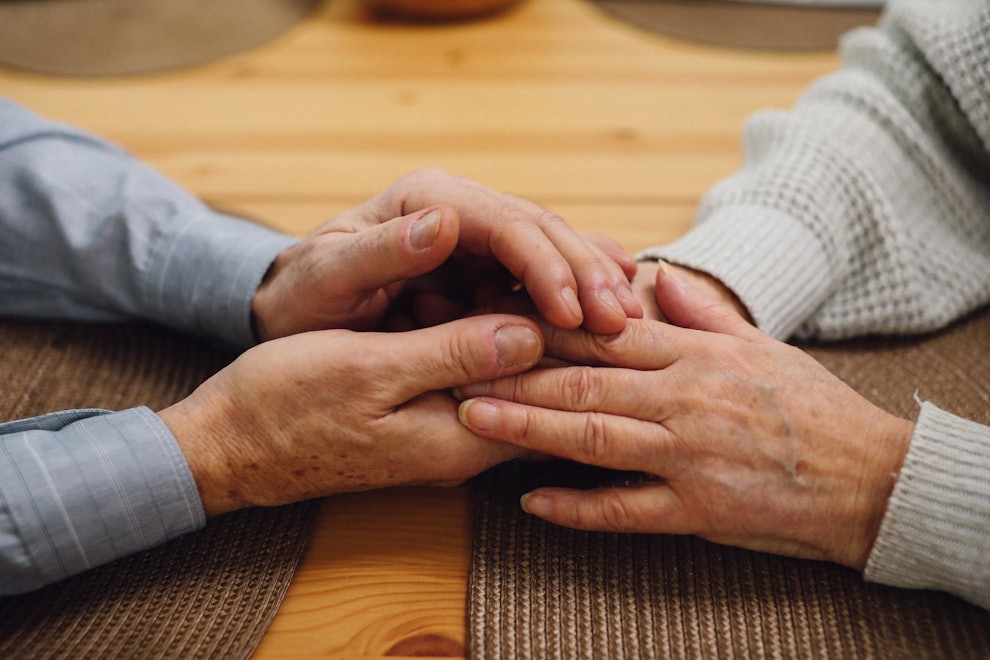
FAQ
How do you stay calm while waiting for a cancer diagnosis?
Some suggestions for remaining calm while waiting for a diagnosis include processing your fears and emotions, asking for information on how and when you will receive results (to help prepare you), and having someone with you when you expect to hear the news.
What is the "two-week" rule for suspected cancer?
The "two-week" rule is a system that allows those who may have symptoms of cancer to be seen by a specialist as soon as possible (within two weeks) which can allow a person quicker access to learning if they have cancer.
The most common types of cancer?
The top three most common types of cancer include breast cancer, prostate cancer, and lung cancer.
Sources
- https://www.cancer.org/support-programs-and-services/online-communities.html
- https://www.cancer.org/research/cancer-facts-statistics/all-cancer-facts-figures/2023-cancer-facts-figures.html
- https://www.mayoclinichealthsystem.org/hometown-health/speaking-of-health/11-tips-for-coping-with-a-cancer-diagnosis
- https://med.stanford.edu/survivingcancer/coping-with-cancer/coping-with-cancer.html
- https://www.uclahealth.org/news/coping-with-cancer-diagnosis
- https://supportorgs.cancer.gov/home.aspx
- https://www.cdc.gov/cancer/survivors/healthy-living-guides/physical-health/sleep.htm
- https://www.cancer.net/coping-with-cancer/managing-emotions/managing-stress
- https://www.cdc.gov/cancer/survivors/healthy-living-guides/physical-health/eating-healthy.htm
- https://www.cdc.gov/cancer/survivors/healthy-living-guides/physical-health/physical-activity.htm
Become a patient
Experience the Oak Street Health difference, and see what it’s like to be treated by a care team who are experts at caring for older adults.

